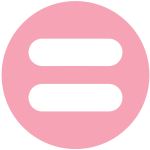Freedom from discrimination
All people deserve equal opportunities to participate in the community and live freely and safely. Tolerance need not extend to actions or words that harm people and groups that experience discrimination and stigma.

Barriers to justice
For some groups of people, systemic discrimination makes accessing basic needs and rights harder.
Gender-based discrimination drives a gendered gap in wages, superannuation, and unpaid caring work. This leads to poorer financial security for women at all stages of life. Workplace sexual harassment is far too common, and victim-survivors often can’t seek justice. Non-disclosure agreements and defamation claims are often misused to silence and punish victims.
People with disability experience discrimination and mistreatment in education, healthcare settings, employment, social services, and the criminal legal system. Guardianship and other laws are used to deny people with intellectual disability their right to make decisions about their lives. They are also more likely to experience poverty and imprisonment. People with stigmatised health conditions like HIV and mental illness also face discrimination and social exclusion.
Jess is a young woman with several disabilities. She recently left a domestically abusive relationship which left her with a fractured neck. When she presented to the emergency department, healthcare workers were dismissive due to her disability. Jess had no formal or informal supports and felt like she was slipping through the cracks. She reached out to a community legal centre, which provided her with a facilitated referral to an advocacy organisation. The advocacy organisation was able to immediately accept the referral and help Jess access adequate medical care and other supports like the NDIS.
LGBTIQ+ people are discriminated against in the workplace and mistreated in education settings. Protections from discrimination across many areas of public life are limited. Transgender people face legal and financial barriers to gender-affirming healthcare. Housing and employment discrimination drive high rates of homelessness and poverty in the trans community, especially for trans women.
Amelia is a trans woman who allegedly committed a minor summary offence in a public building. Amelia left and was walking home when she noticed a security officer from the building following her. She asked him why he was following her and whether she was in trouble. He said she wasn’t, but moments later grabbed her arm and took her back to the building, where at least five police officers were waiting. Amelia asked what was happening and why she was being detained. She was told she was not under arrest, but she was not free to leave.
After a twenty minute delay, police handcuffed Amelia behind her back and the group of police marched her along the footpath for more than 100 metres on a busy street to the local police station. They held her in a cell for several hours, denying her multiple requests to make a phone call, before finally charging her.
Police charged Amelia under her deadname (the name given to her at birth and associated with her gender assigned at birth), despite Amelia having legally changed her name with Births Deaths and Marriages years before and showing police her driver’s licence with her correct legal name. Police exclusively referred to her by her deadname and used it on all documentation. As the matter progressed, police continued to refuse all requests for it to be corrected, citing “system” and administrative issues.
Older people experience discrimination, particularly in employment and housing. This combines with gender-based discrimination to drive high rates of poverty and homelessness among older women.
Our vision for justice — freedom from discrimination
Australia has comprehensive, consolidated, and modern national anti-discrimination laws that protect key attributes missing from current laws, like experience of domestic and family violence, irrelevant criminal record, visa status, and sex work. New laws provide clear pathways for people who experience discrimination to seek justice.
All workers receive fair pay and conditions, and all workplaces are free from discrimination and sexual harassment. People who have experienced sexual harassment, assault or discrimination can report without fear of being sued for defamation.
People with intellectual disabilities are supported to make decisions about their lives, healthcare and bodies. All people with a disability are treated equally and paid fairly in the workplace. People with disabilities and stigmatised health conditions can access remedies when their rights to privacy and non-discrimination are violated.
Religious institutions, including schools, universities, hospitals, healthcare, housing and disability providers and other community services, cannot discriminate against people based on their sexuality, gender identity, family or relationship status, disability or health condition, or membership of minority faith groups.
People who have experienced discrimination can access free, specialised, timely legal support.







